Best plants to help with sleep – 9 houseplants experts say will bring calm, freshness and relaxation for a peaceful night's slumber
Discover the valuable impact indoor plants can have when it comes to creating a soporific space
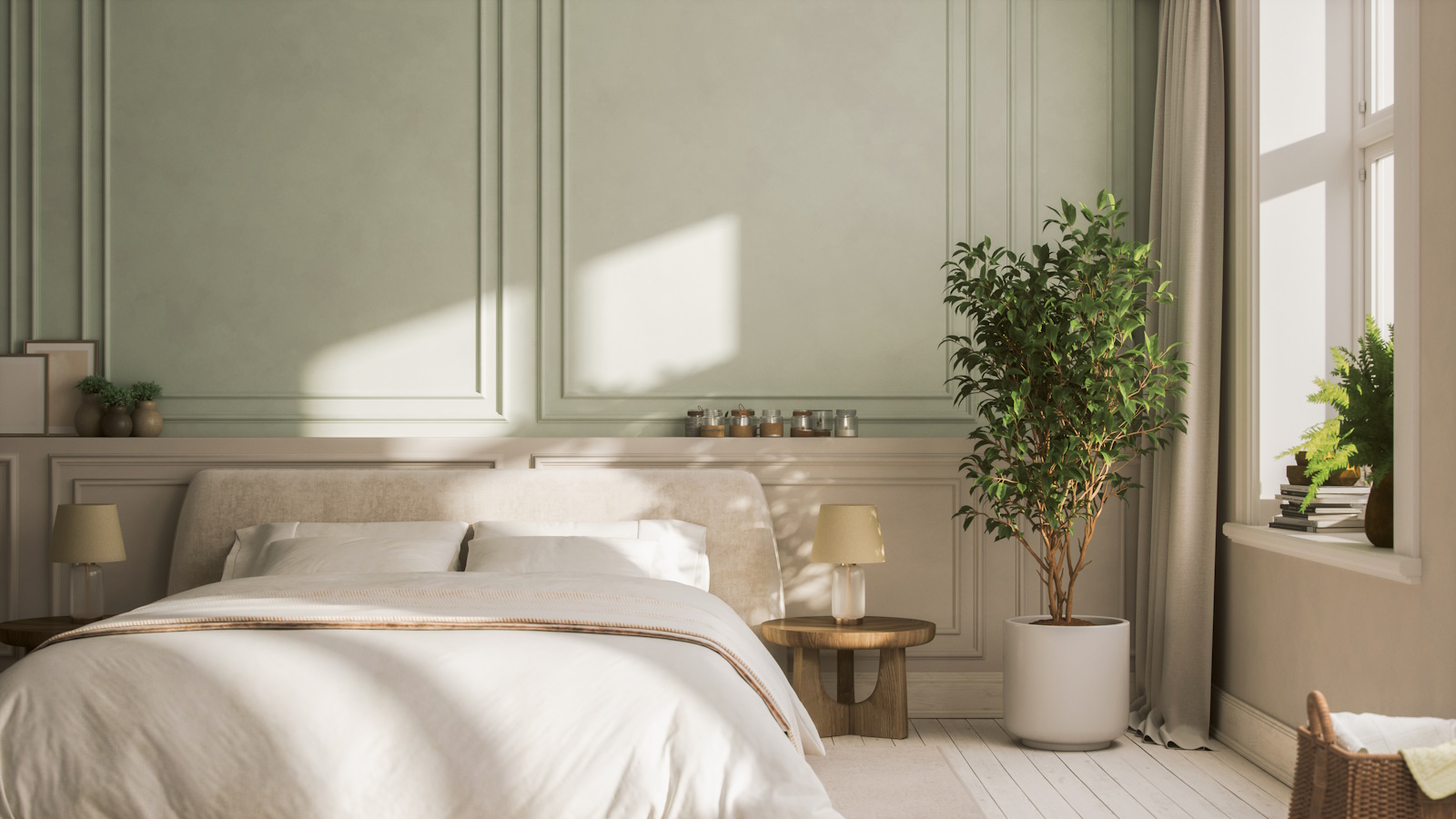

There are many important factors that go into ensuring good night's sleep. We can all choose the right mattress, ban screens from the bedroom and choose calming colors for our walls and comforters. But have you ever wondered whether your plants could be making a difference to your slumber?
Although the scientific studies into plants to help with sleep are inconclusive, there are many benefits to bringing plants into your bedroom. When it comes to indoor plants can clean the air, official research by NASA which was later backed up in further studies has found several varieties that possess this useful quality. Many plants also emit fragrance that is soothing, releasing endorphins in the brain which improves our moods and calms our busy minds.
So, before you invest in one of the best mattresses to improve your sleep, consider bringing some houseplants into your bedroom. These are the nine indoor plants that sleep specialists and our very own garden experts approve for a better night's sleep.
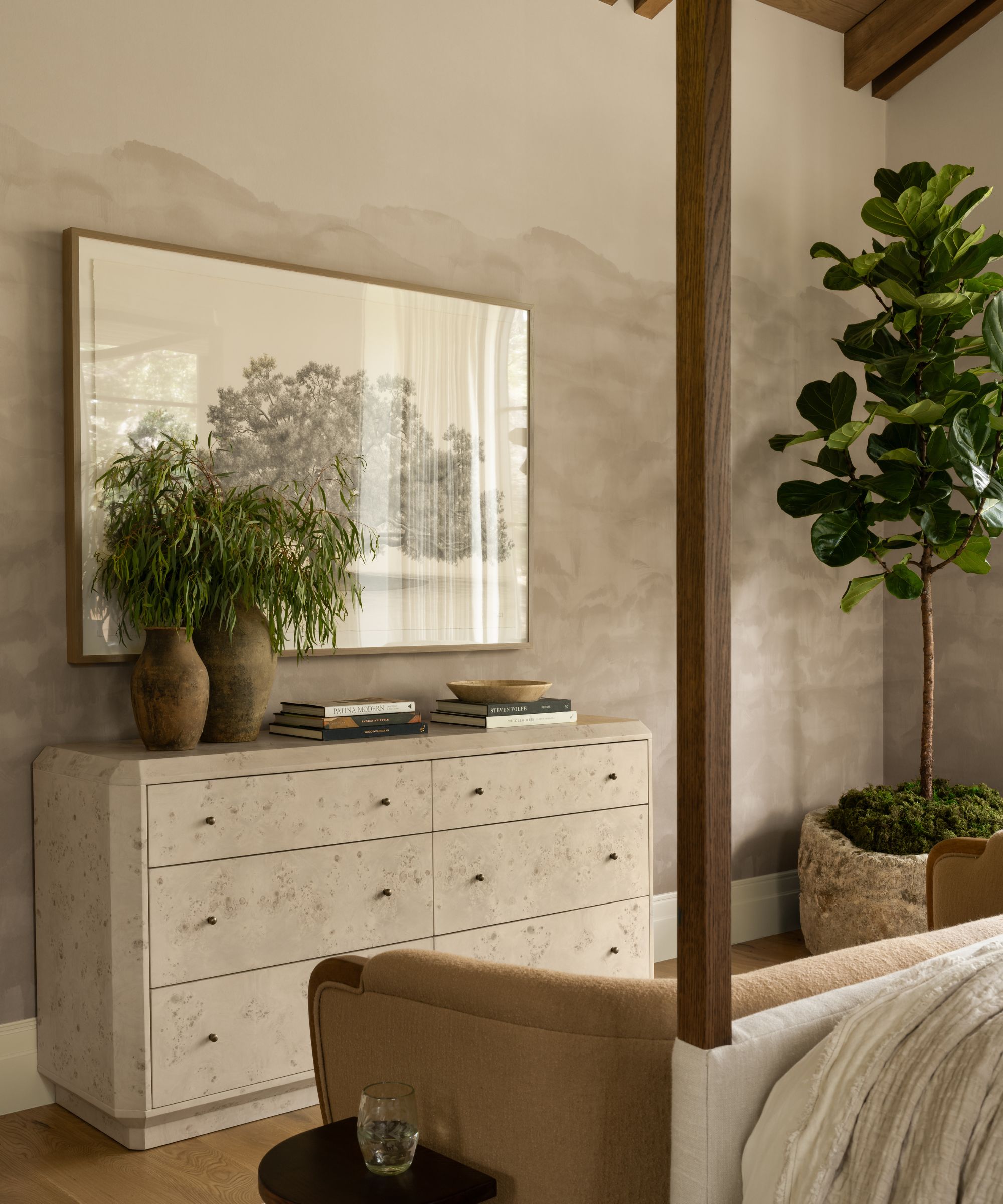
Bedroom plants for better sleep
Bringing plants into the bedroom has proven advantages for sleep. As sleep psychologist Dr. Katherine Hall, confirms.
'Many studies have shown plants have sleep-inducing benefits. Firstly, they can help lower a person's cortisol levels (stress hormones) by emitting oxygen at night that clears the mind and relaxes the body.'
These plants can act as natural air purifiers, releasing water vapor through their leaves and stems to maintain humidity levels in the home. 'This is especially helpful in hotter months when indoor spaces become drier than normal,' adds Katherine.

Dr. Katherine Hall is a Sleep Psychologist who specializes in treating insomnia. She holds degrees with specializations in Acceptance and Commitment Therapy and Cognitive Behavioural Therapy for Insomnia. With over 13 years of clinical experience working in the public and private sectors, Katherine is dedicated to improving sleep health.
Best plants to help with sleep
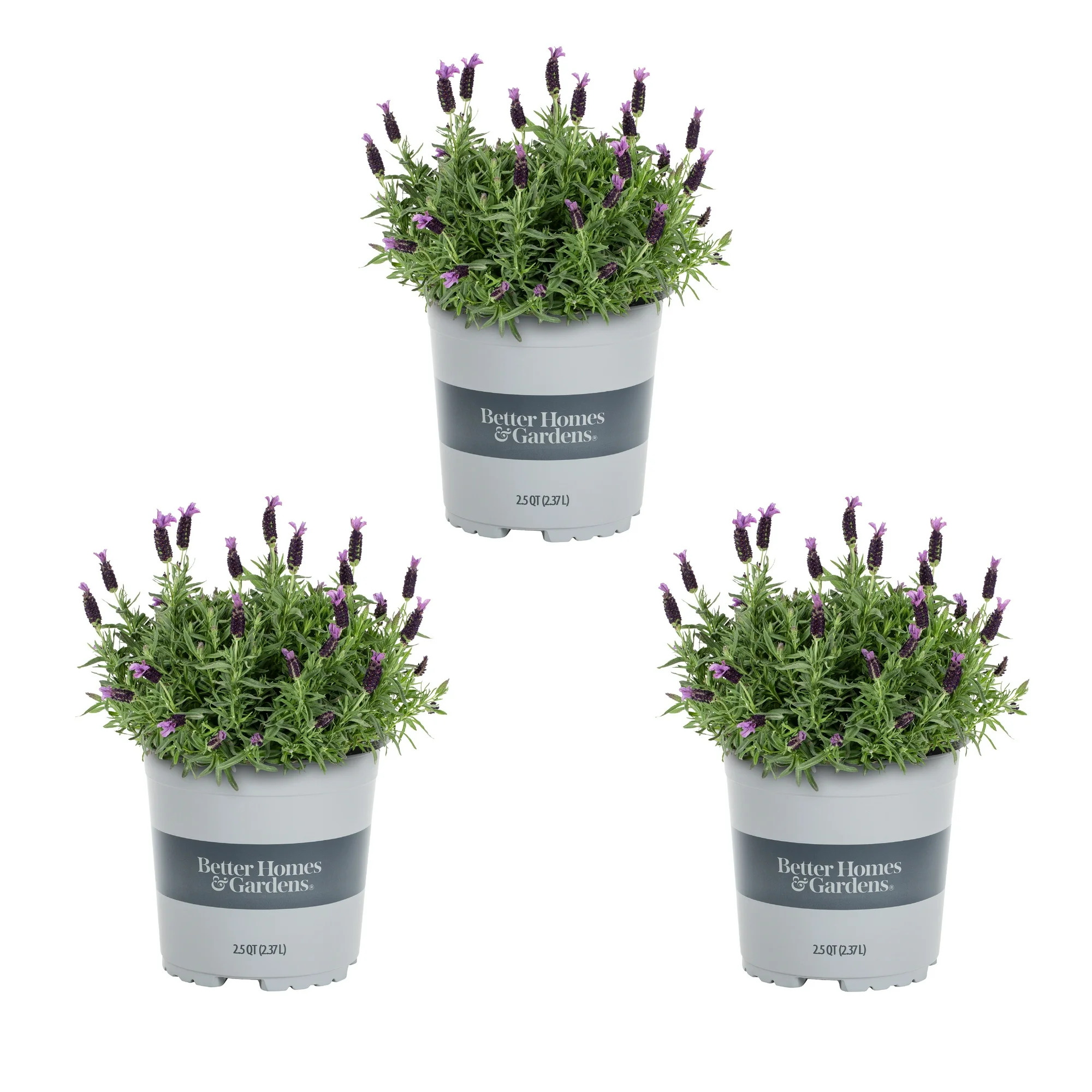
Sunlight: Ideally needs eight hours of sunlight.
Care: Requires a warm, bright spot.
Scents of lavender have long been associated with relaxation. You can find lavender sleep sprays and essential oils designed to help with sleep, but why not add an actual plant to your bedroom? 'Lavender is long-lasting, and you'll smell its calming fragrance as soon as you step by your bed', says Katherine.
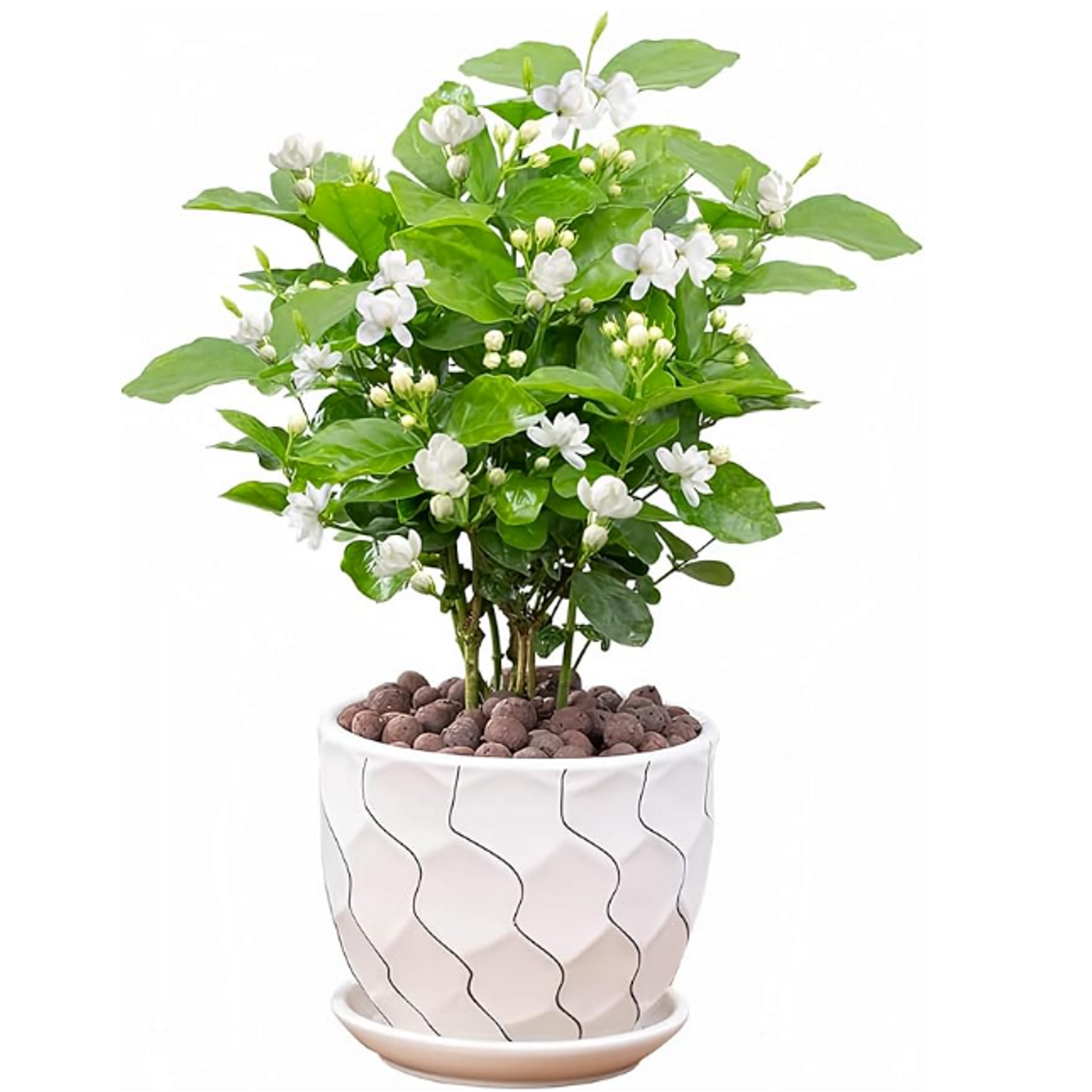
Sunlight: Keep close to a window for direct sun.
Care: Will need more water when flowering.
Jasmine produces a sweet scent that helps to reduce stress and anxiety. Studies have shown people who fall asleep with jasmine wake up feeling calmer. This wellness-promoting plant not only smells great but looks pretty in a bedroom, with white flowers that bloom during summer months.
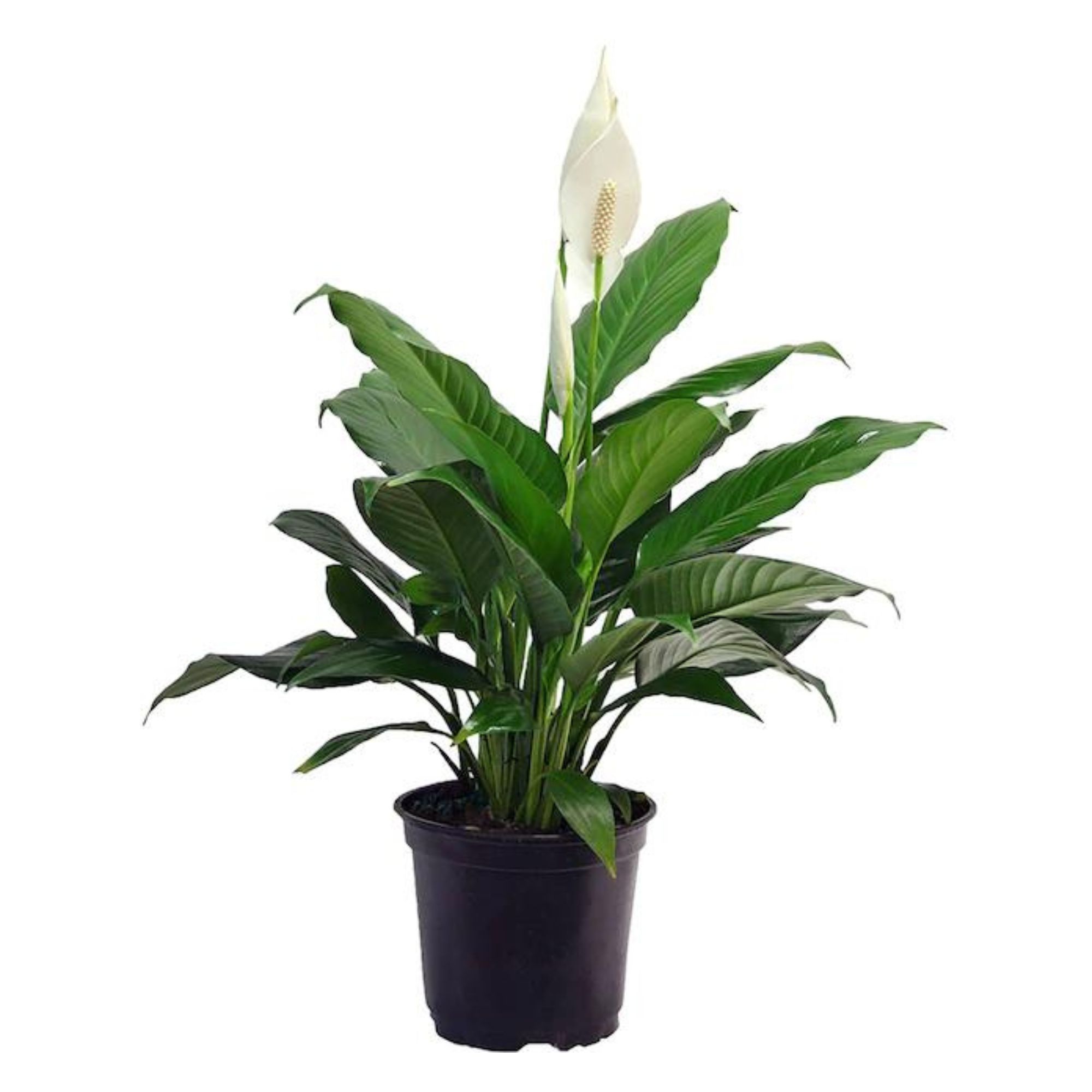
Sunlight: Prefers indirect sunlight, can survive varying light levels.
Care: Water moderately; soil should be moist, not soggy.
NASA's Clean Air Study back in the late 1980s found that the peace lily is one of the best air-cleaning indoor plants. They help filter out harmful toxins, maintaining humidity levels for an ideal sleeping atmosphere. 'They're attractive plants to place in a floor-standing pot, or pretty basket,' says Katherine.
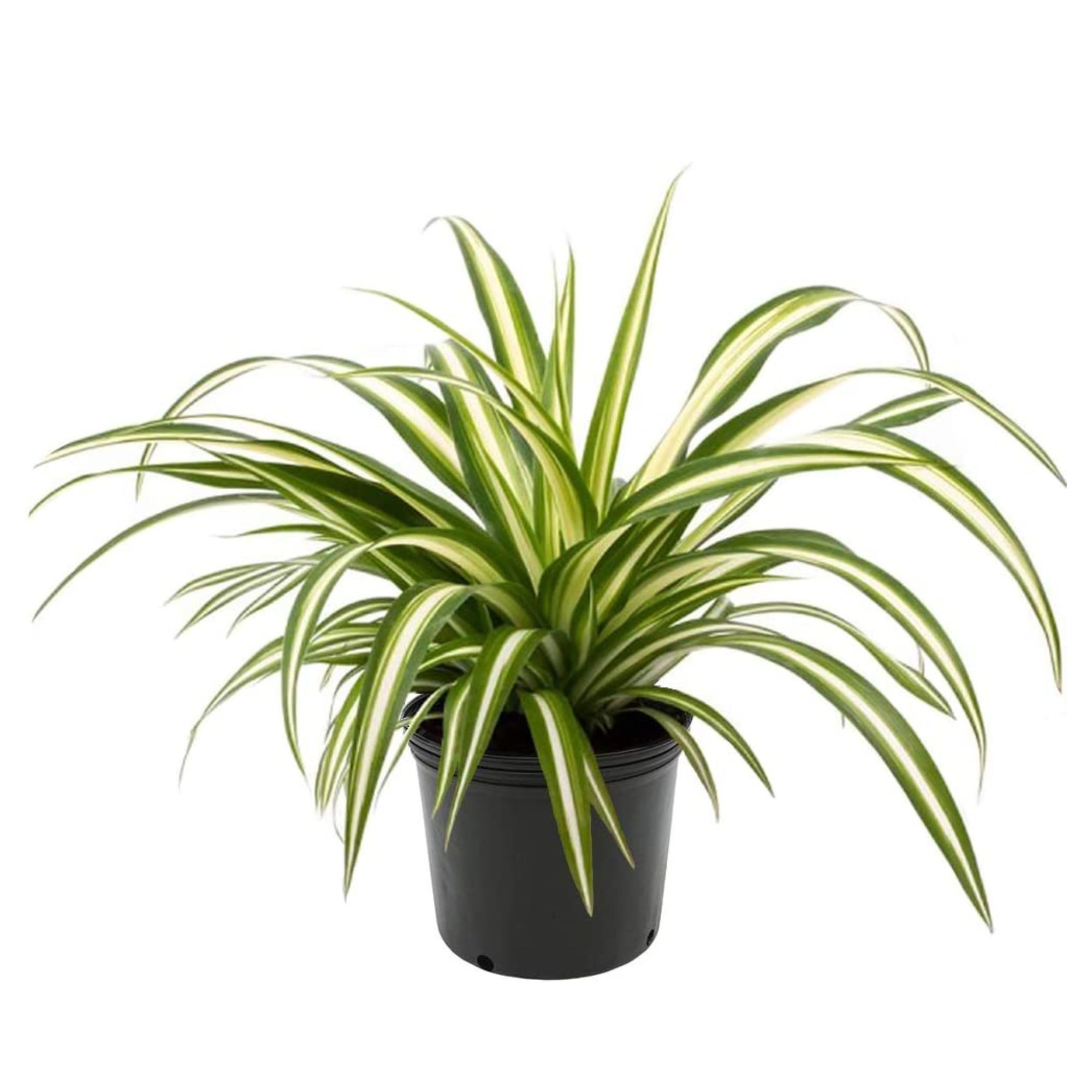
Sunlight: Don't require direct sunlight, medium light instead.
Care: Only water when top two inches of soil feel dry.
A low-maintenance option, spider plants are easy to care for. With long leaves that spike out and fan over the pot, they're great for absorbing toxins, including any odors, and increasing oxygen levels in the air. They also look great in hanging pots or on a window ledge for a boho bedroom look.
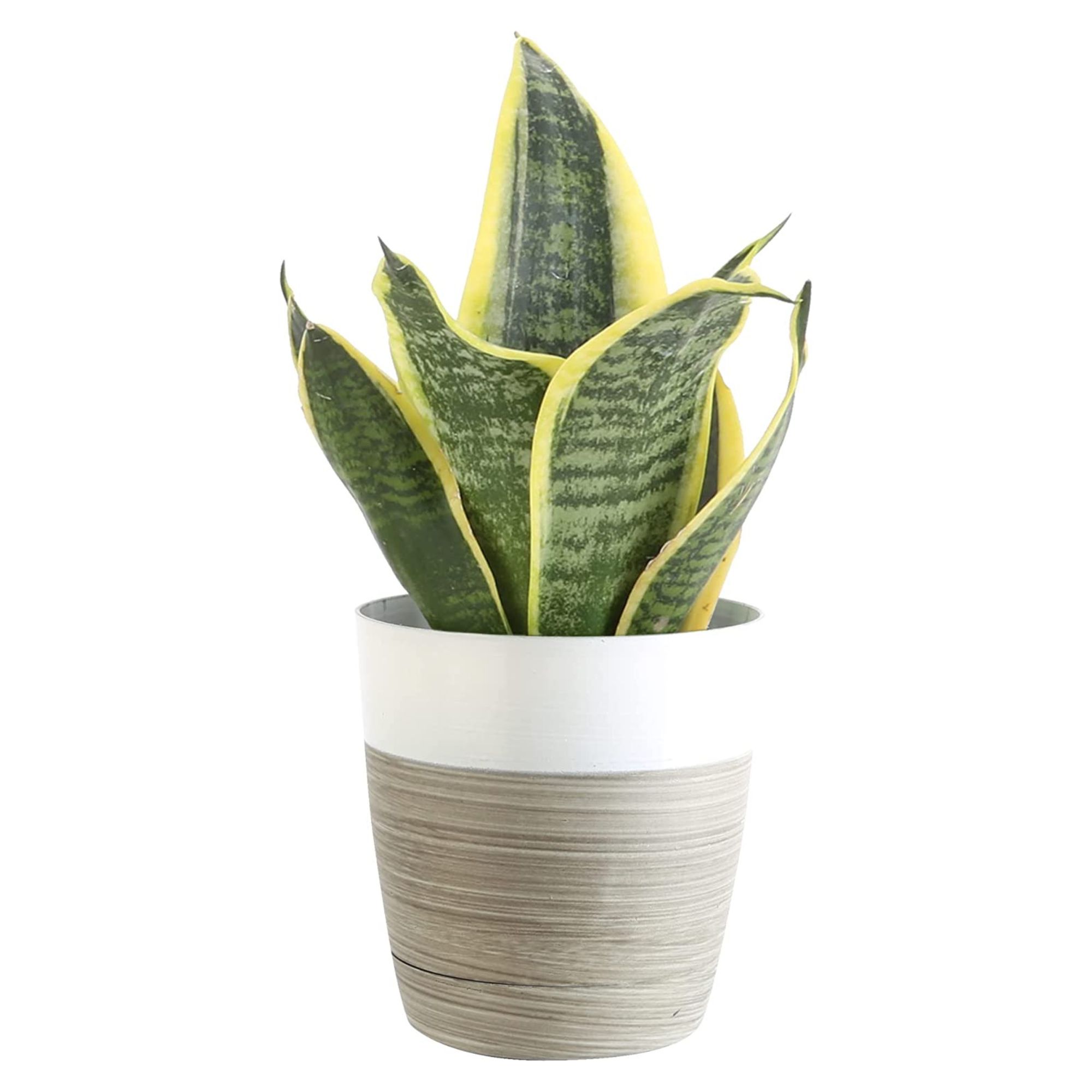
Sunlight: Prefer sunlight but can survive in shadier spots.
Care: Avoid excessive watering, water every few weeks only.
Snake plants naturally help you get a better sleep by purifying the air. 'They'll remove harmful chemicals from the air to help with respiration', explains Katherine. 'Getting yourself a snake plant or two will provide the best air purification.' Standing tall, snake plants look stylish perched on a nightstand.
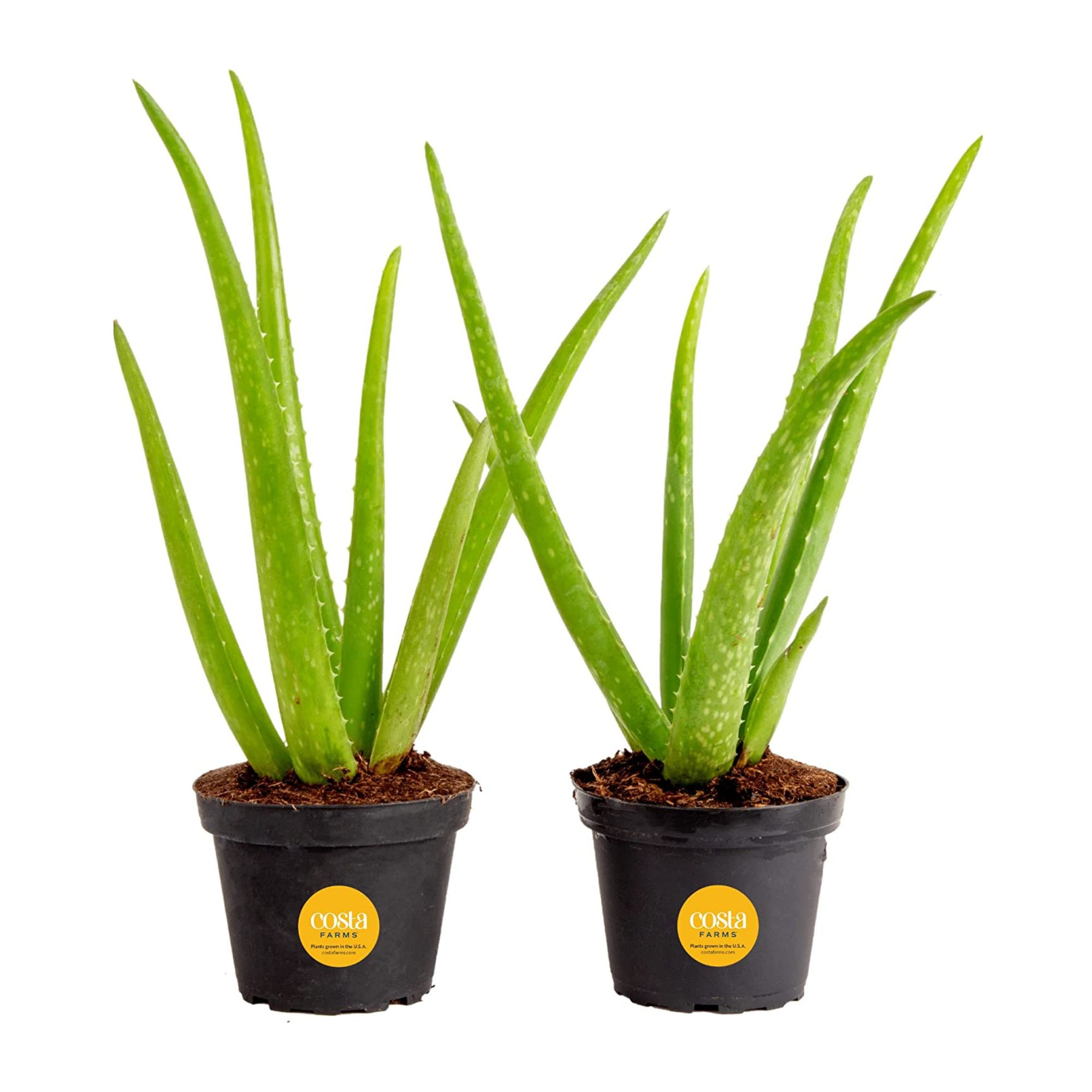
Sunlight: Can survive without sunlight, as they are succulents.
Care: Don't need frequent watering; every two or three weeks in summer, and less in the winter
Aloe vera is a plant long used for its medicinal properties, but these remarkable plants aren't only for skincare. They produce plenty of oxygen to help improve air purity and quality. Being easy to care for they make a great choice for the bedroom, especially if it doesn't get much light.
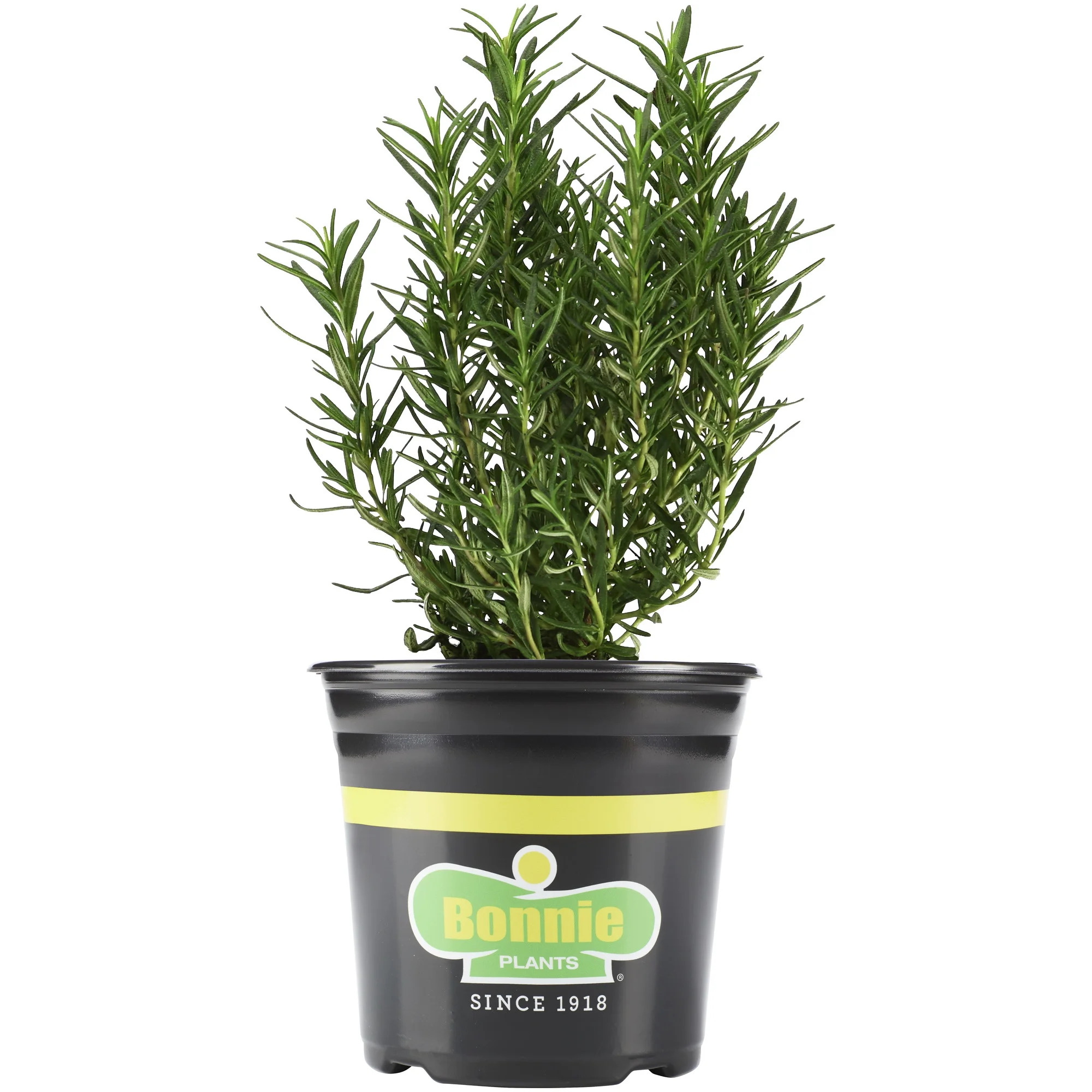
Sunlight: Does best in a direct sun position.
Care: This plant is quite drought-tolerant, so you will only need to water it every few weeks in summer. Reduce watering in winter.
Rosemary is not only a delicious herb to cook with, it's also loved for its strong aroma which has been found to relax our minds. So long as you place your rosemary plant on a sunny windowsill, it can grow happily indoors.
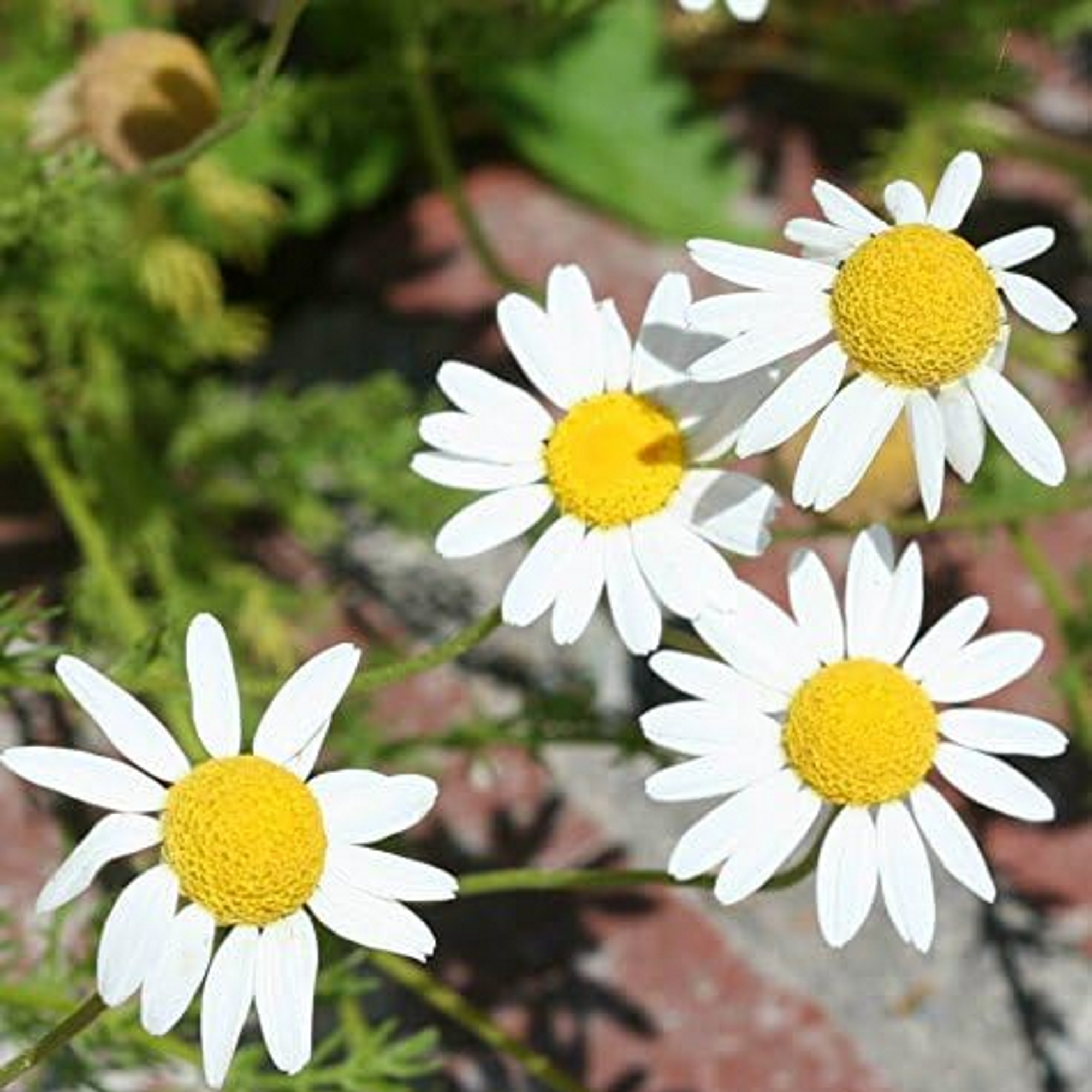
Sunlight: This plant requires plenty of sun to bloom.
Care: Keep chamomile plants at a consistent moisture level by regularly watering them.
Chamomile flowers are medicinal plants with a range of uses, including for anxiety, digestion and improving skin. It's a popular flower for herbal tea for this reason, having a calming effect. It's easy to grow these beautiful flowers indoors in a container with a drainage hole.
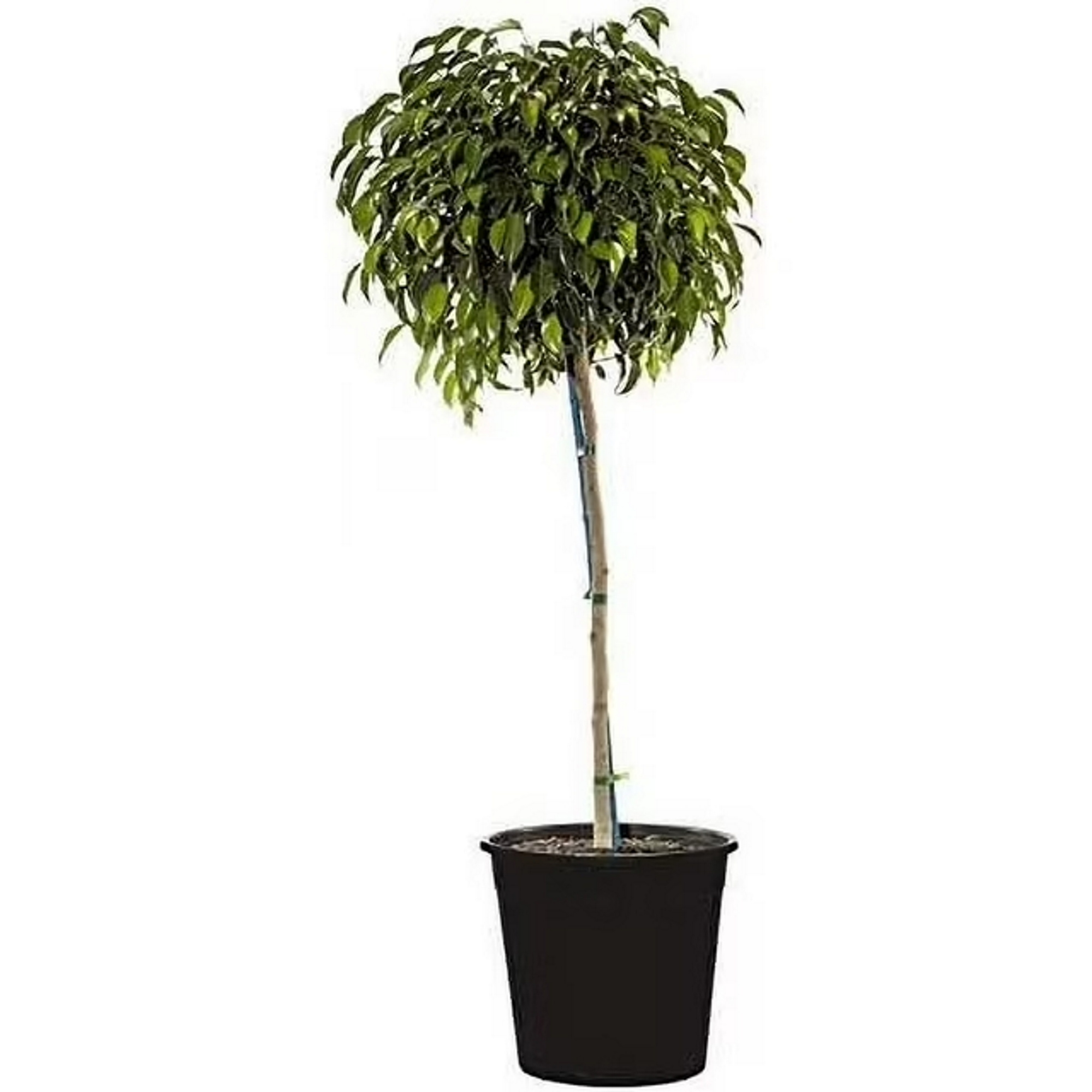
Sunlight: Place your weeping fig somewhere with plenty of bright light, but out of direct sun.
Care: Maintain consistent moisture levels without letting soil dry out completely. Give it a top up of water when the top inch has dried out.
Weeping figs are incredibly easy to care for and they can thrive in a range of indoor environments. The reason you should bring one of these tall indoor plants into your bedroom is because it has purifying qualities and releases oxygen at night.
How to choose the best sleep-inducing plant for you
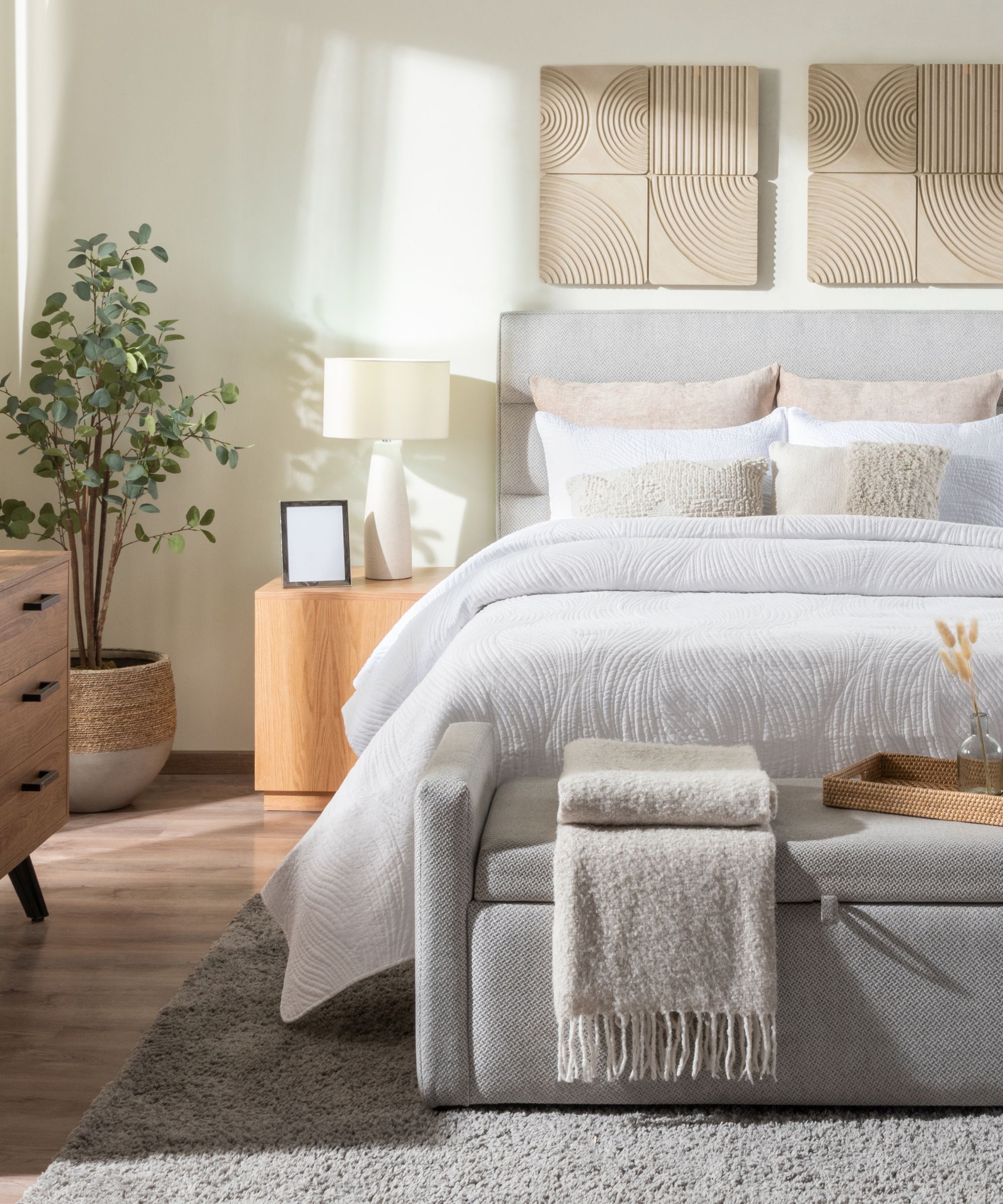
Style: Houseplants come in various shapes, styles, and colors. Some may suit bedroom schemes more than others. Trailing houseplants, such as a pothos (devil's ivy), are ideal for adding greenery to a bedroom shelf or bookcase, and its cascading leaves will add interest to a blank bedroom wall.
Rachel Bull, Head of Gardens at Homes & Gardens, advises to think about texture, too. 'I have a gorgeous weeping fig tree, Ficus benjamina, opposite my bed and I love it for its soft, cascading leaves, elegant height, and rich shade of green. It really helps to relax me, despite not having a scent, because it adds that feeling of being within nature. I am biased, but is there anything better for our mental wellbeing that being among the trees? So anything I can bring into my bedroom space to replicate this is a huge plus for me.'
Size: It's important to think about the eventual size of your houseplants. Some varieties may grow too big for your space, especially if you have a small bedroom. Snake plants and spider plants are good options as they won't dominate your bedroom and can easily sit on the top of a set of drawers or a bedside table.
Sleep needs: You may need to give your houseplant choices a little extra thought if you have allergies, as you’ll want to avoid sleeping next to ones that aggravate symptoms. You should be especially mindful of this with flowering plants that produce pollen, such as orchids. Make sure to also keep your houseplants clean, simply by wiping the leaves with a damp cloth, to prevent dust build up which can also cause allergic reactions.
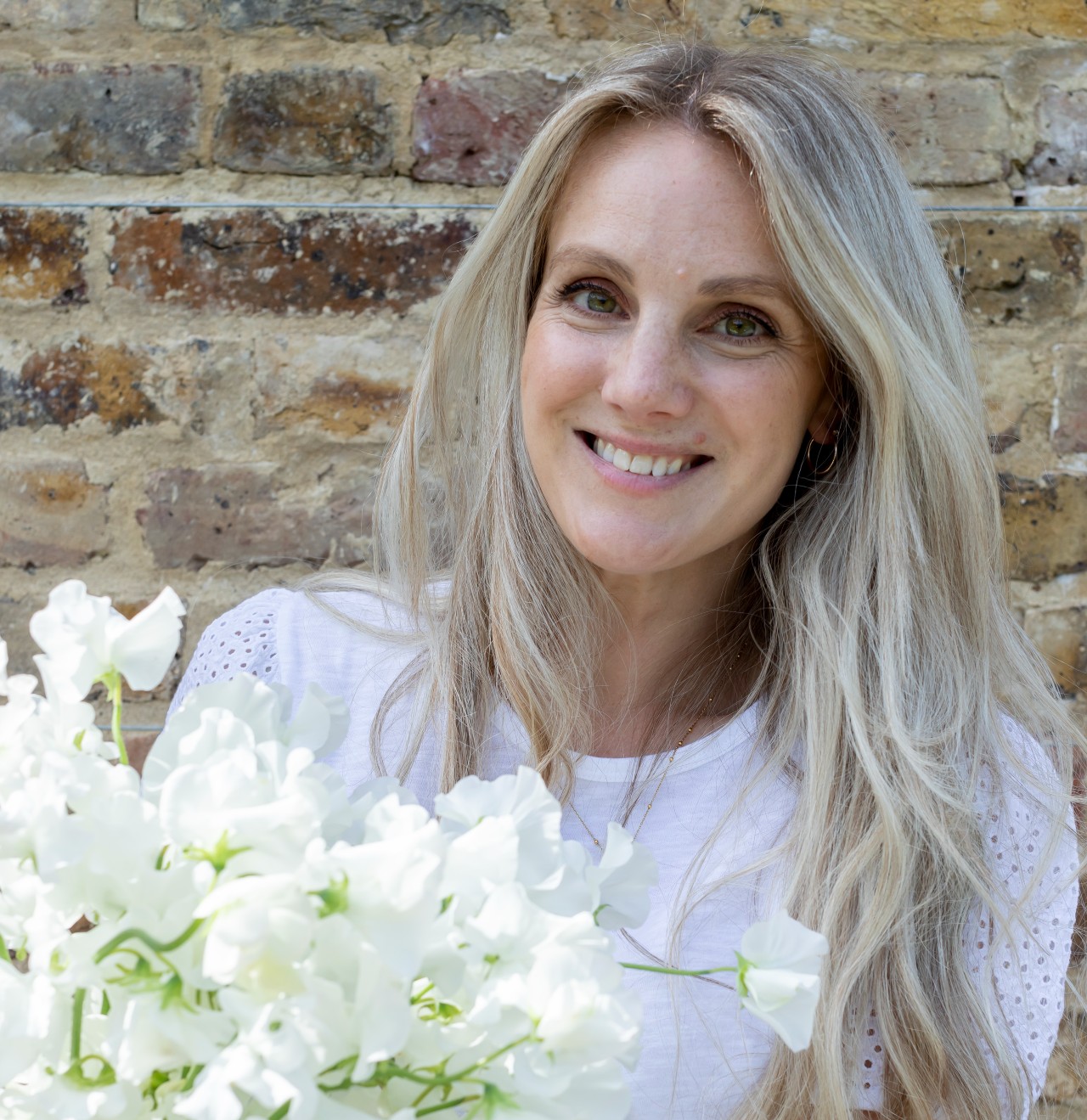
Rachel is a gardening writer, flower grower and floral designer. After more than a decade writing for and editing a range of consumer, business and special interest titles, Rachel became editor of floral art magazine The Flower Arranger. She then worked as a floral designer and stylist for six years, before joining Homes & Gardens. An expert in cut flowers, she is particularly interested in sustainable gardening methods and growing flowers and herbs for wellbeing.
FAQs
What is the best plant for a bedroom?
It's all down to personal preference and the light and warmth you can give bedroom plants in your home. If we had to pick one, a peace lily is a wonderful choice. Peace lilies are a really easy houseplant to care for and therefore work well in a bedroom. If you notice it starting to droop slightly, however, give it a good drink of water and it should soon perk up.
Are there any houseplants that can disrupt sleep?
There are some houseplants you should never place in your bedroom because they can impact how calm this space feels and your sleep as a result. Cacti are a good example of this, cutting into the energy of your bedroom, according to Feng Shui. Likewise, toxic plants like African milk tree should also be avoided to ensure your bedroom remains a safe space for relaxation.
If you're keen to use plants to help with sleep in your bedroom, it's worth also reading up on Feng Shui houseplant mistakes. It's not just about choosing the right plants for your interiors, but also how you place them. Having the right plants positioned in the wrong space or displayed in an unhelpful way might just end up hindering your rest instead of helping it.
Sign up to the Homes & Gardens newsletter
Design expertise in your inbox – from inspiring decorating ideas and beautiful celebrity homes to practical gardening advice and shopping round-ups.

Tenielle is a Gardens News Writer at Homes & Gardens. She holds a qualification in MA Magazine Journalism and has over six years of journalistic experience. Before coming to Homes & Gardens, Tenielle was in the editorial department at the Royal Horticultural Society and worked on The Garden magazine. As our in-house houseplant expert, Tenielle writes on a range of solutions to houseplant problems, as well as other 'how to' guides, inspiring garden projects, and the latest gardening news. When she isn't writing, Tenielle can be found propagating her ever-growing collection of indoor plants, helping others overcome common houseplant pests and diseases, volunteering at a local gardening club, and attending gardening workshops, like a composting masterclass.
You must confirm your public display name before commenting
Please logout and then login again, you will then be prompted to enter your display name.
-
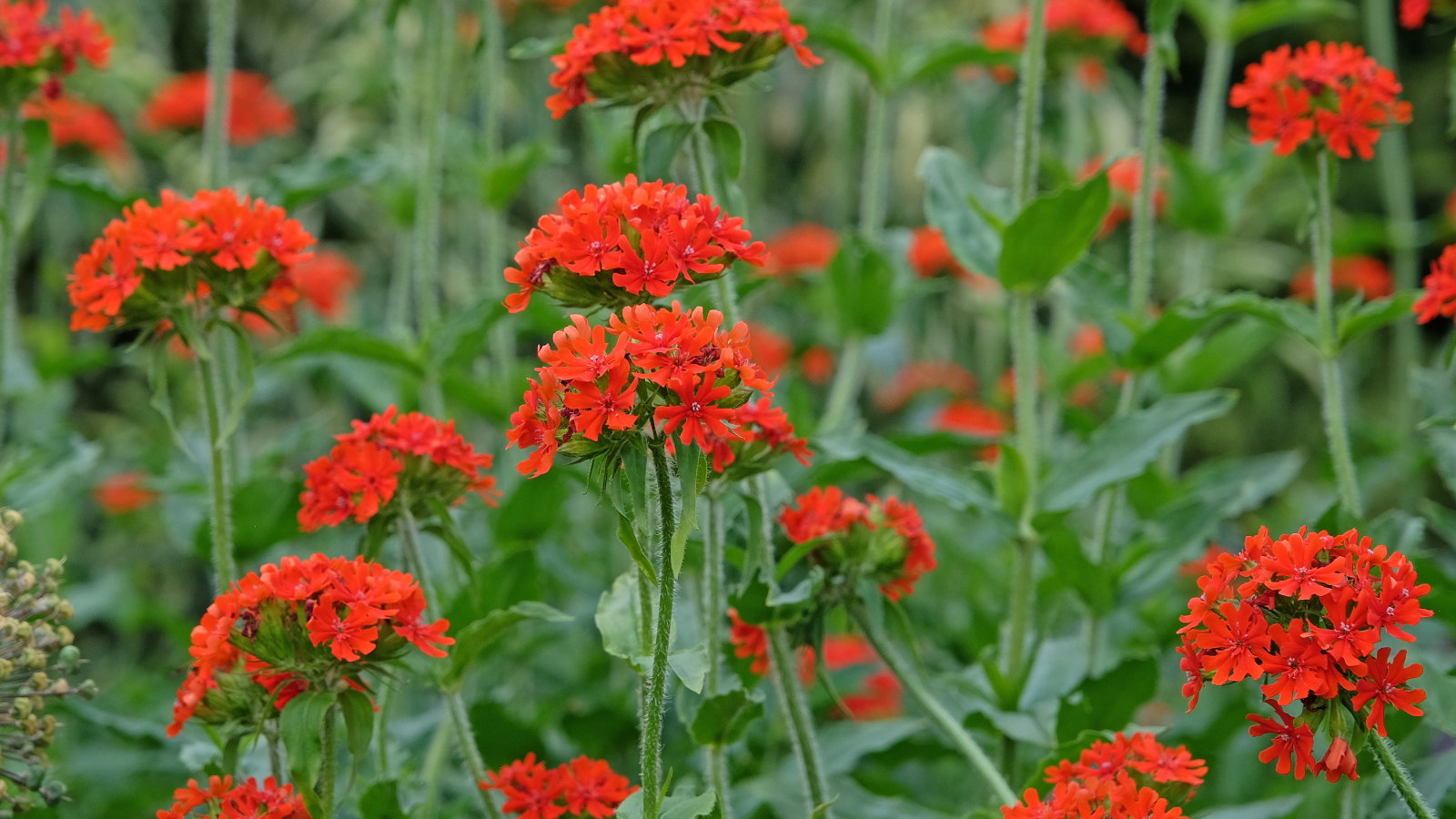 How to grow Silene chalcedonica – for a stunning perennial to attract butterflies, bees, and hummingbirds to your flower beds
How to grow Silene chalcedonica – for a stunning perennial to attract butterflies, bees, and hummingbirds to your flower bedsMake your borders a wildlife haven thanks to this striking, easy-to-grow plant
-
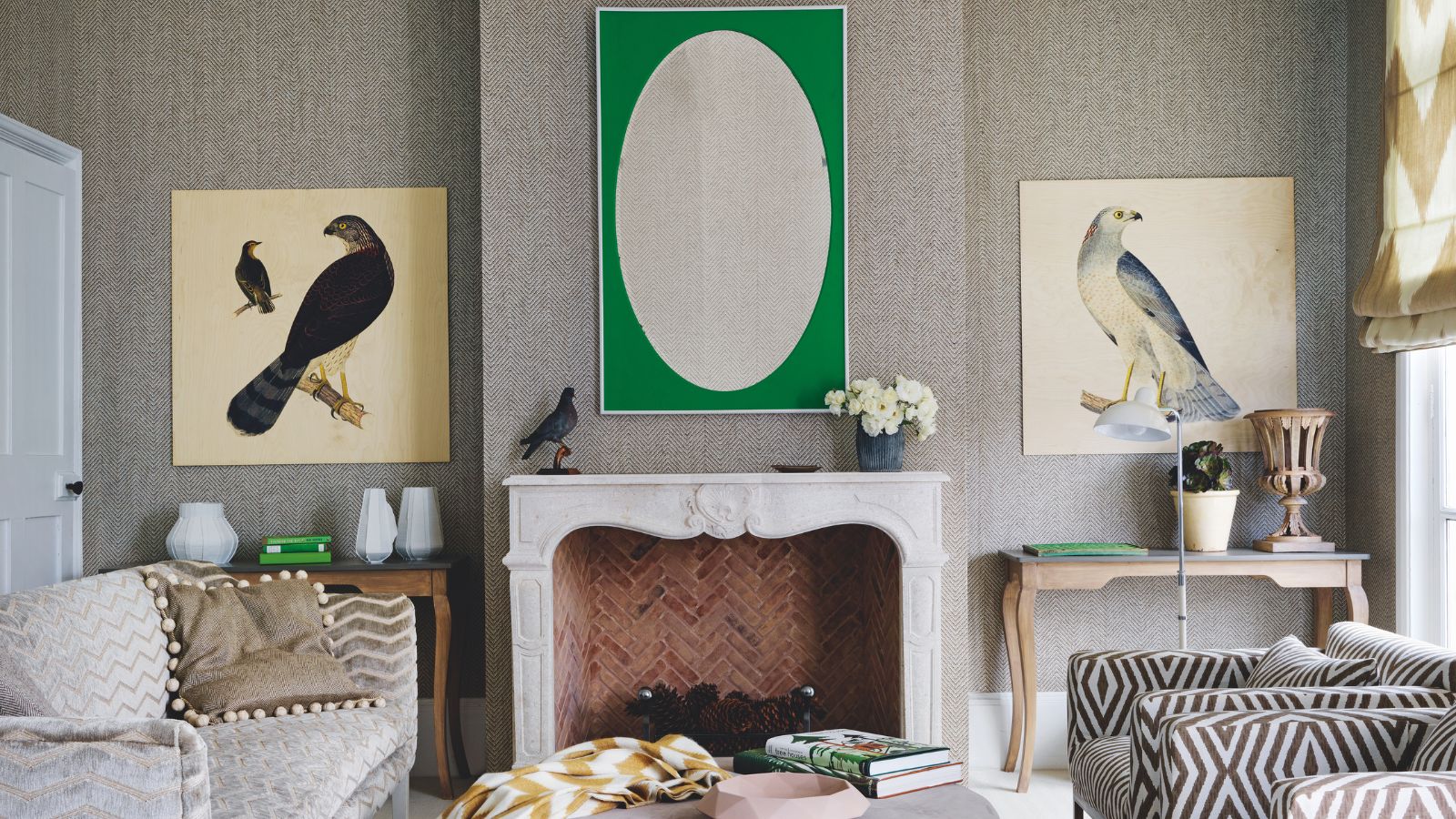 Should you paint a brick fireplace? Experts warn that if things go wrong, stripping it back can be hellish
Should you paint a brick fireplace? Experts warn that if things go wrong, stripping it back can be hellishHere's what you need to consider before taking a paintbrush to your masonry
-
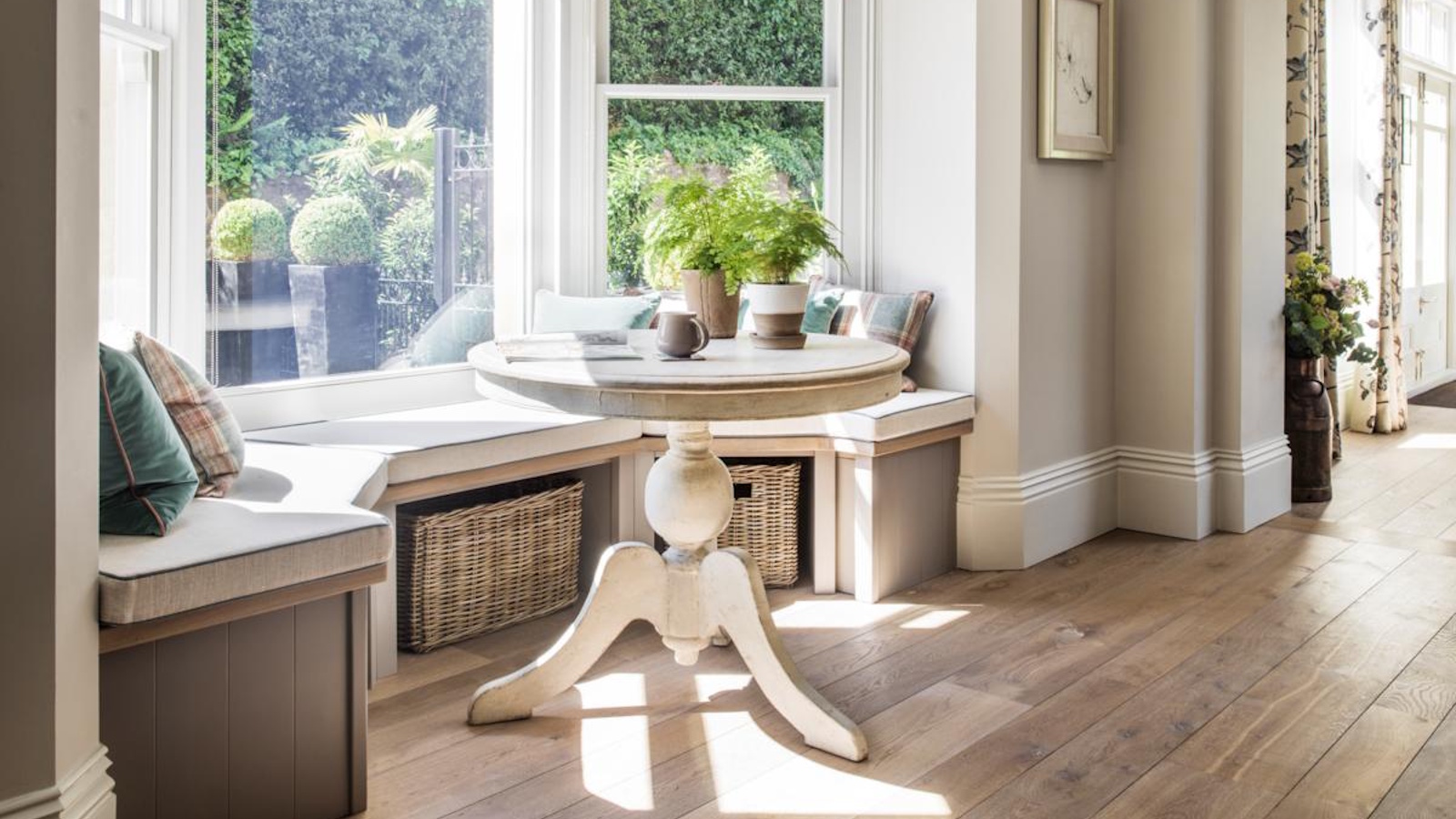 How to propagate an asparagus fern – this is the only method I use and it works every time
How to propagate an asparagus fern – this is the only method I use and it works every timeDuplicate the soft fronds of these ferns with this easy technique
-
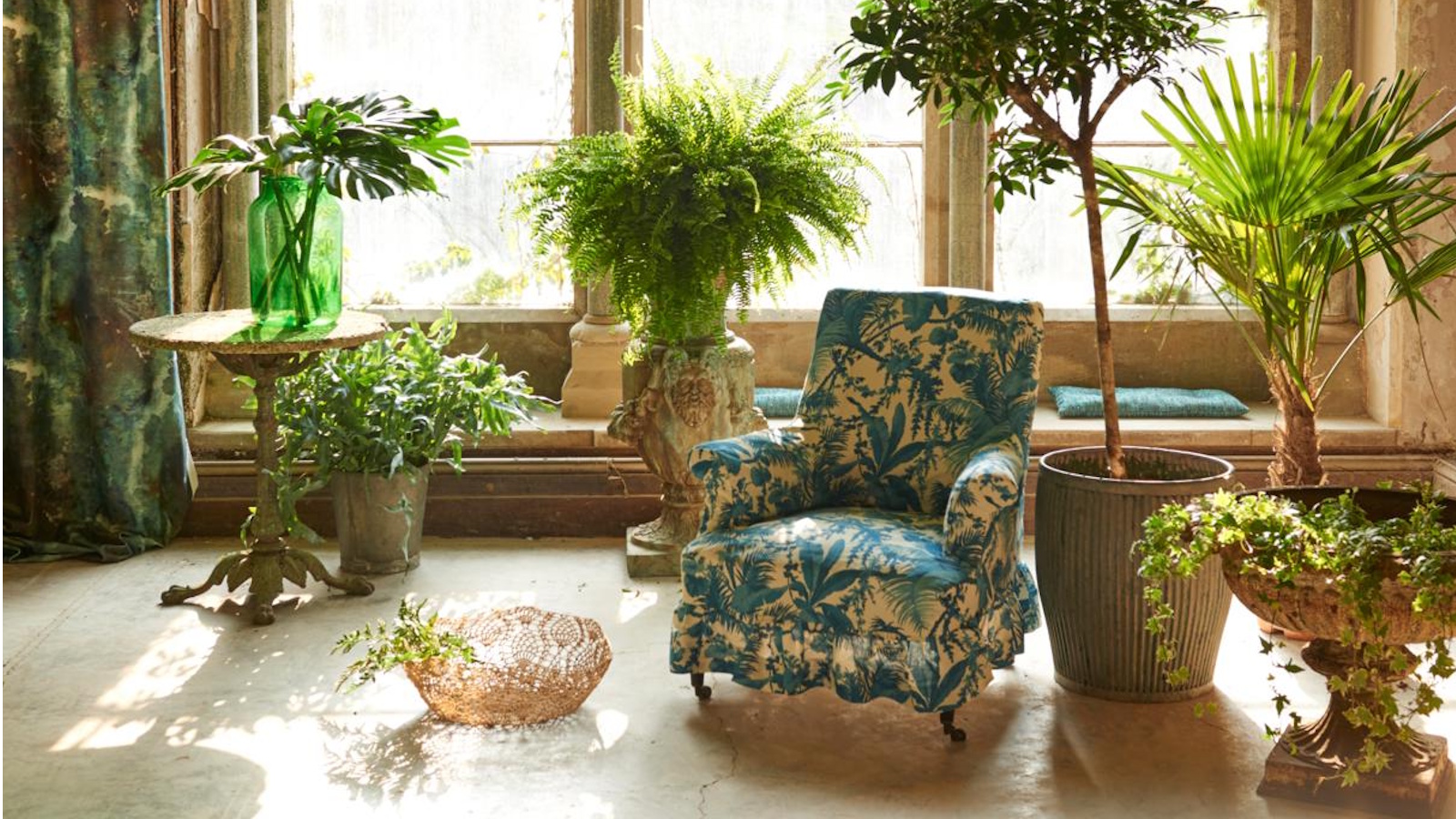 I stopped my monstera leaves curling by making these easy changes – now its statement foliage is the best its ever looked
I stopped my monstera leaves curling by making these easy changes – now its statement foliage is the best its ever lookedKeep your monstera looking perky by managing moisture levels correctly
-
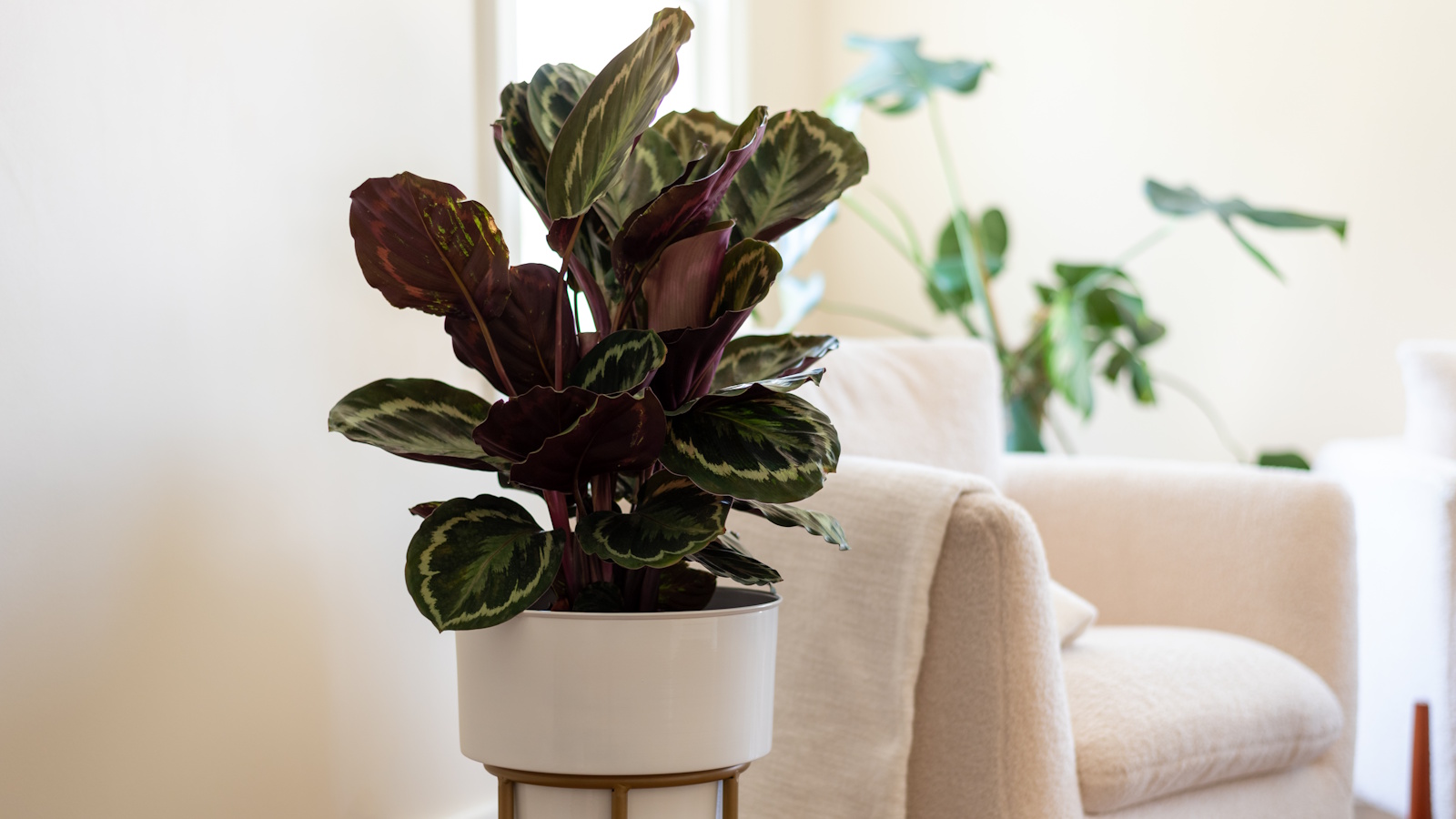 Houseplant experts guarantee these 5 steps will revive a dying calathea – plus tips on how to keep it thriving going forward
Houseplant experts guarantee these 5 steps will revive a dying calathea – plus tips on how to keep it thriving going forwardA little TLC and patience can put these tricky houseplants on the road to recovery
-
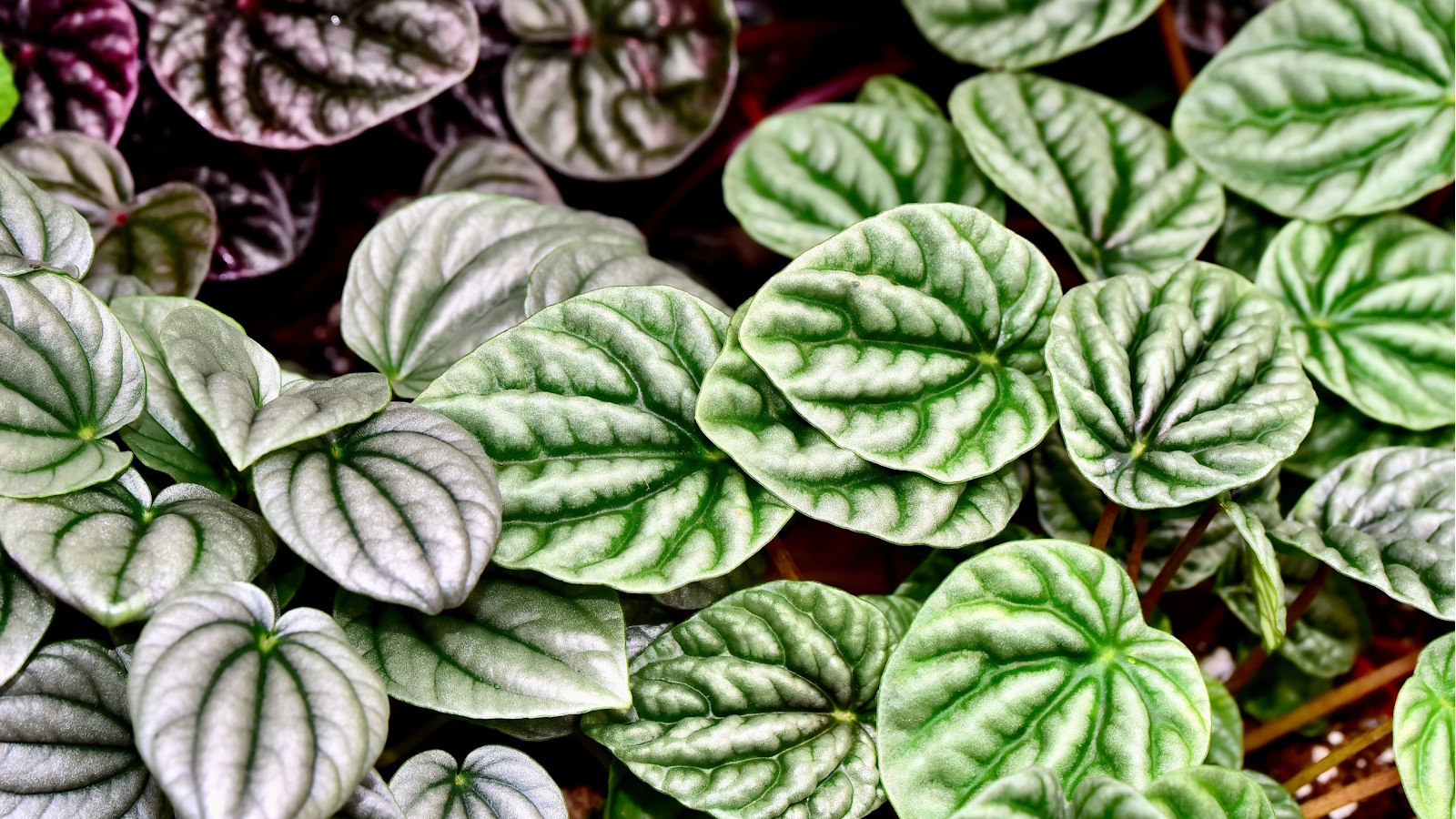 How to care for peperomia plants – 3 tips to keep these textured beauties bright
How to care for peperomia plants – 3 tips to keep these textured beauties brightIf you love fun foliage, you need a peperomia in your home
-
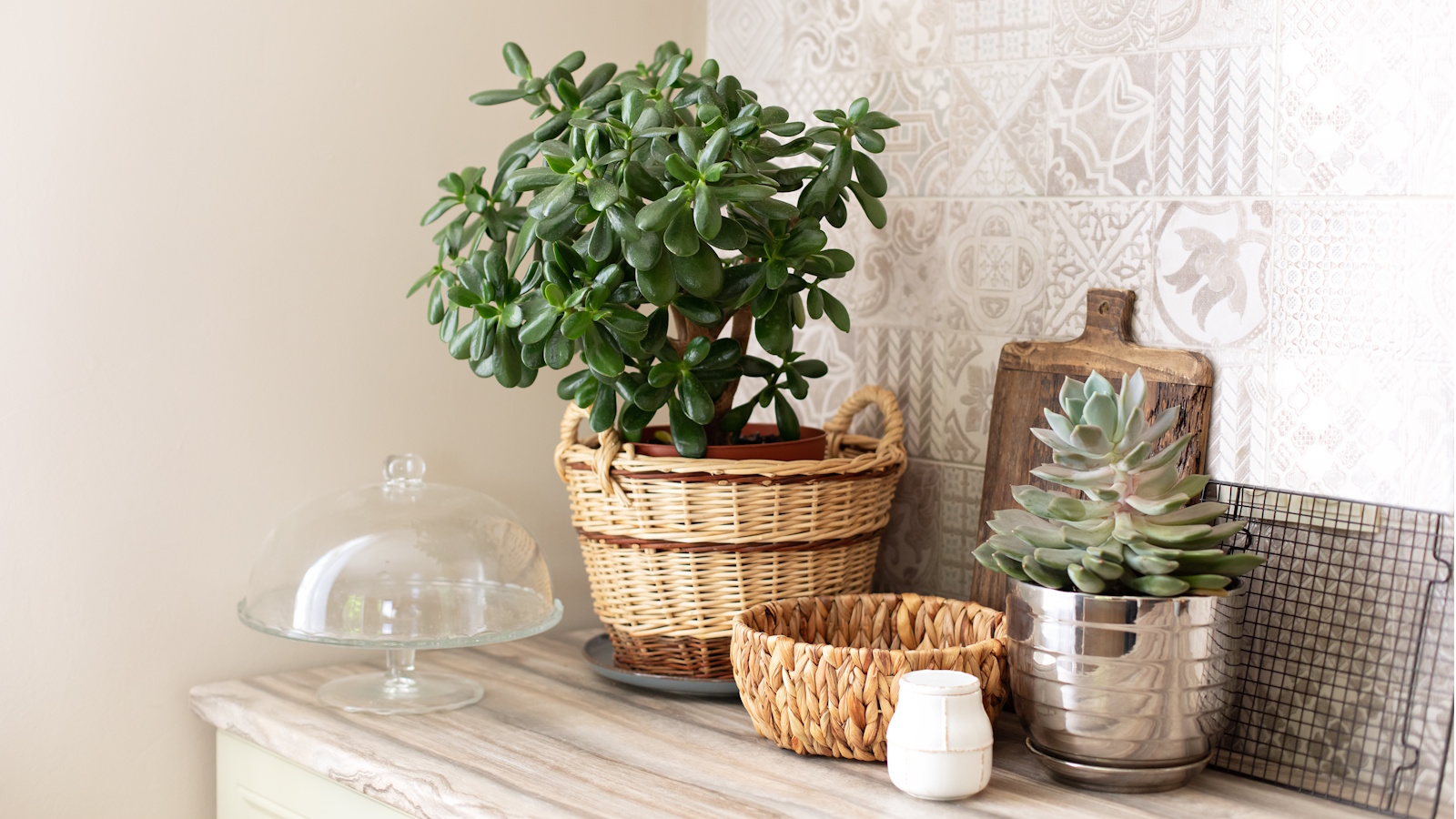 I stopped my jade plant turning red by making one small change – it's only grown plump green leaves ever since
I stopped my jade plant turning red by making one small change – it's only grown plump green leaves ever sinceRed foliage is a sign of stress and an indication your jade plant's growing environment needs adjusting
-
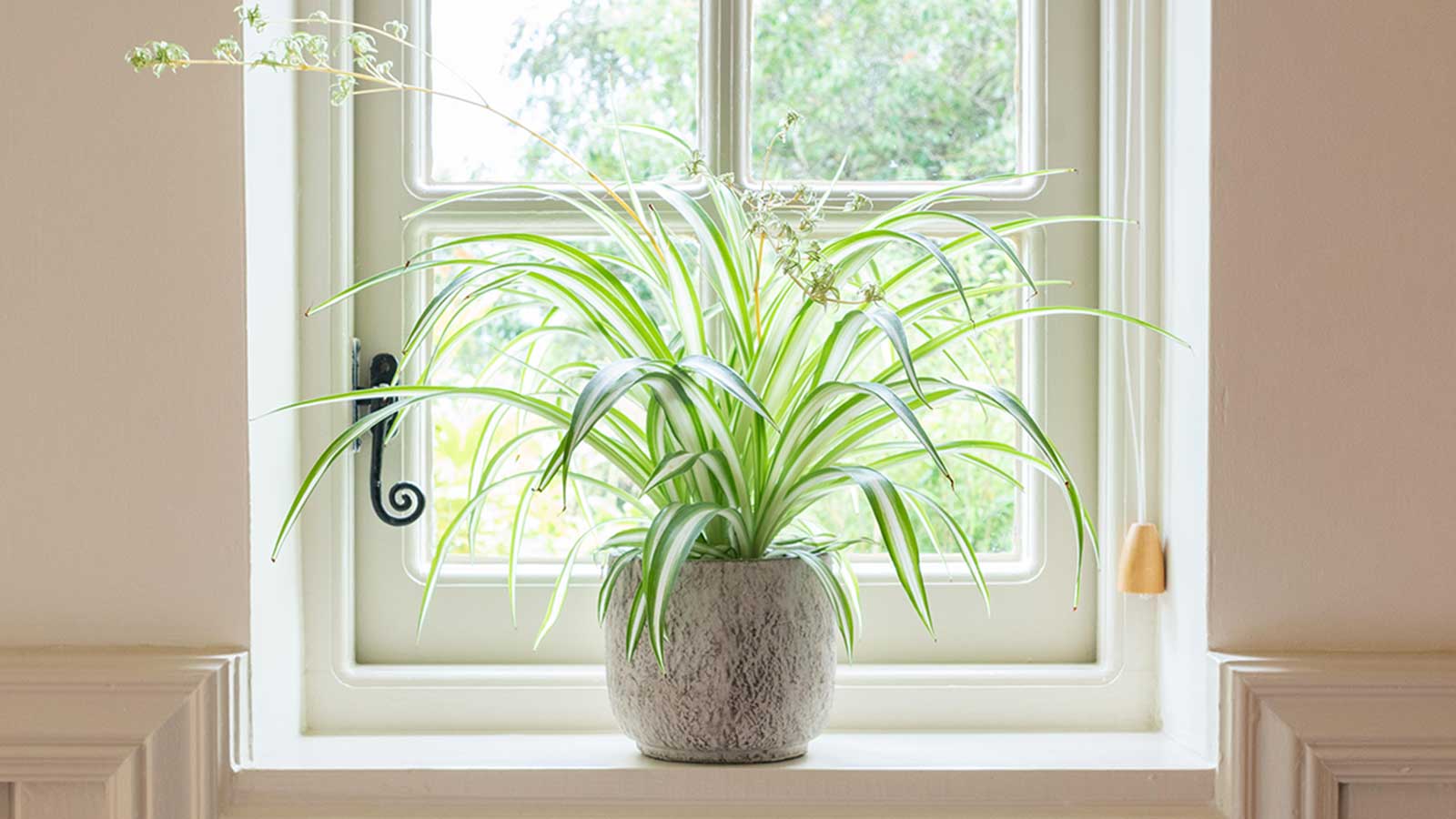 I followed 3 simple steps to make my spider plant bushier – and it tripled in size after just a few weeks
I followed 3 simple steps to make my spider plant bushier – and it tripled in size after just a few weeksThrough propagation, you can quickly give your spider plant a fuller look
-
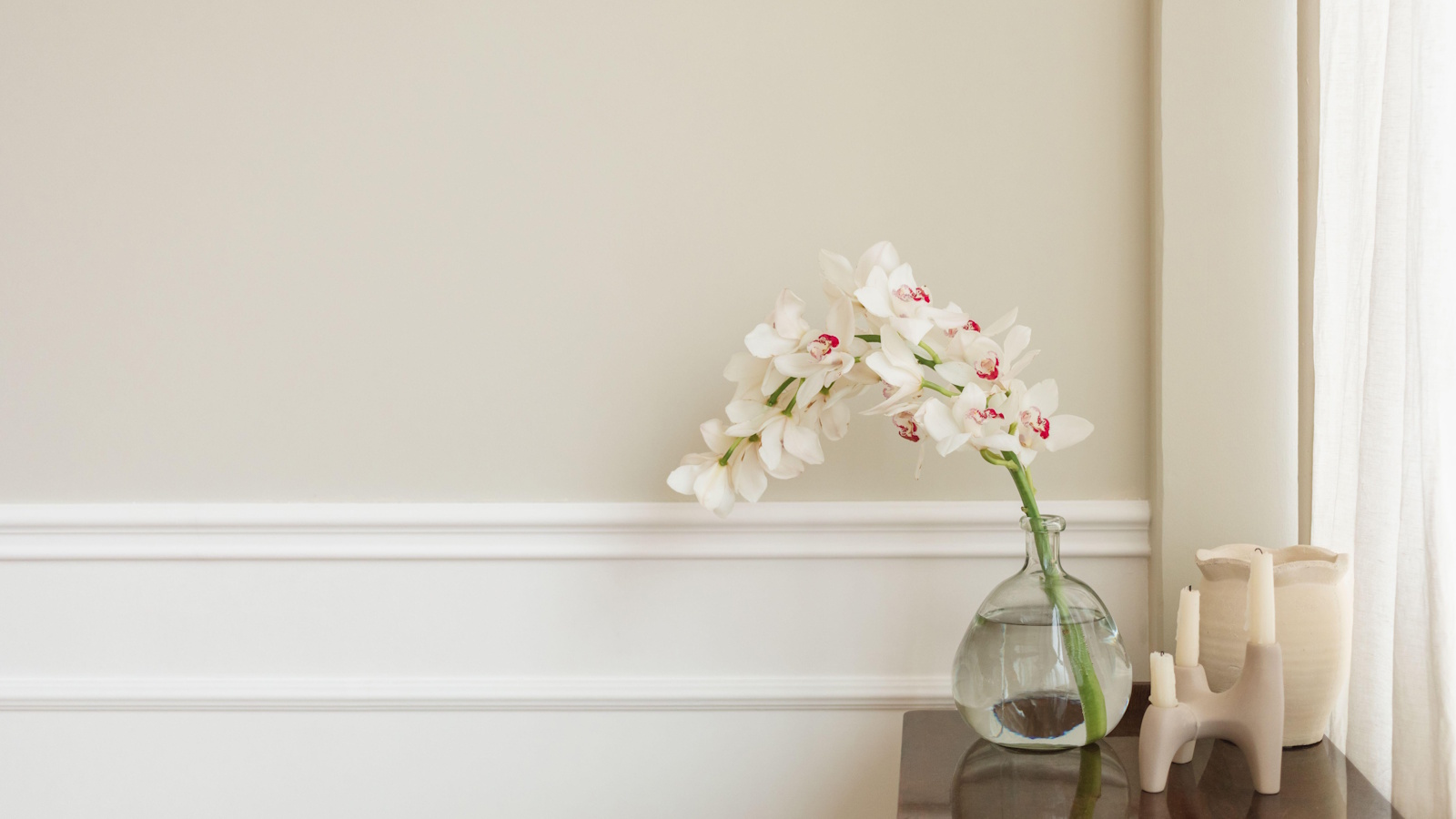 How to make your own orchid fertilizer – a quick DIY with ingredients you likely already have at home
How to make your own orchid fertilizer – a quick DIY with ingredients you likely already have at homeYour orchids will thank you for creating this nutrient-rich feed
-
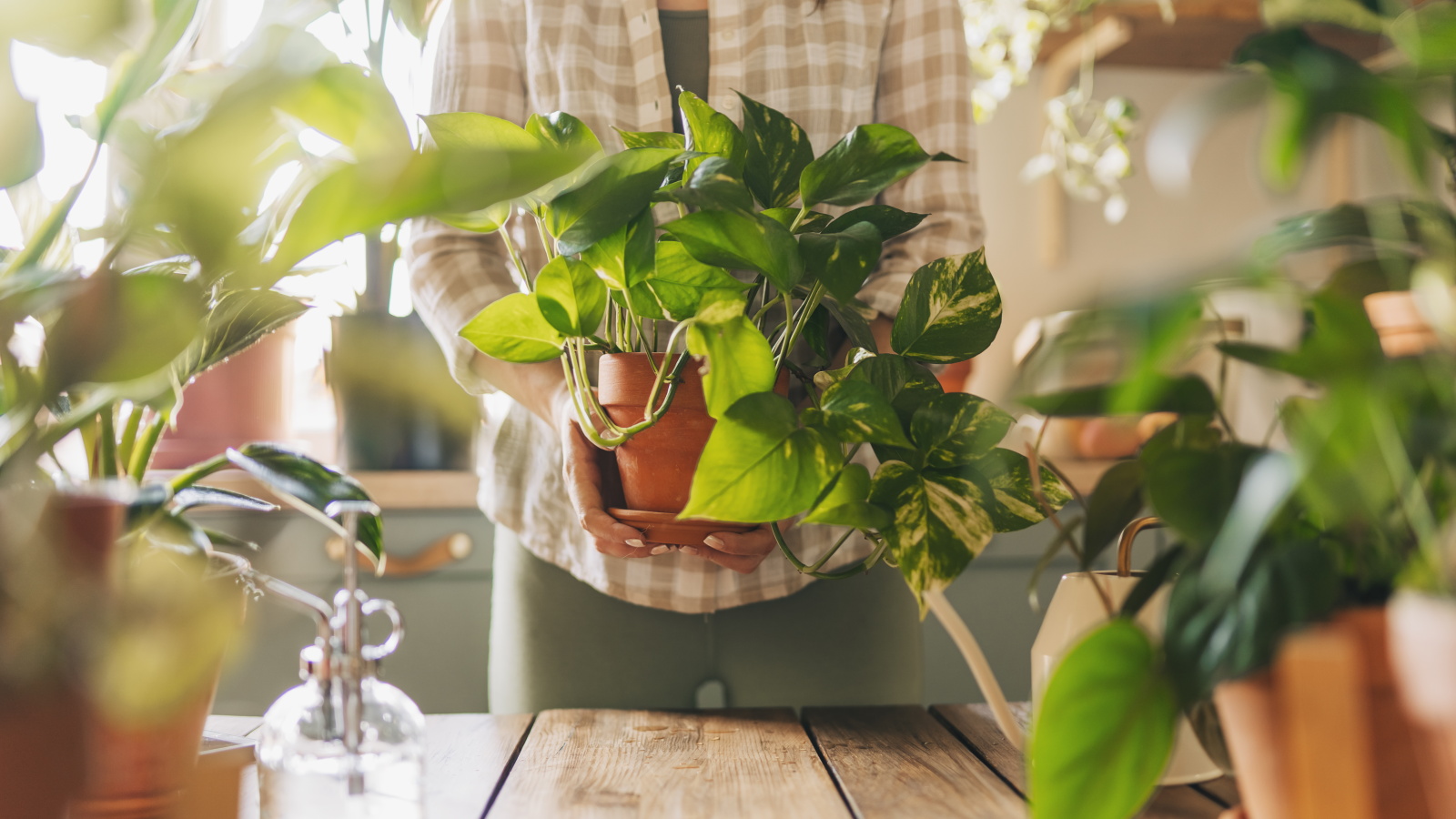 7 habits every good plant parent has, according to houseplant experts – number 3 will surprise you most
7 habits every good plant parent has, according to houseplant experts – number 3 will surprise you mostWatch your houseplants thrive after you build these tasks into your routine